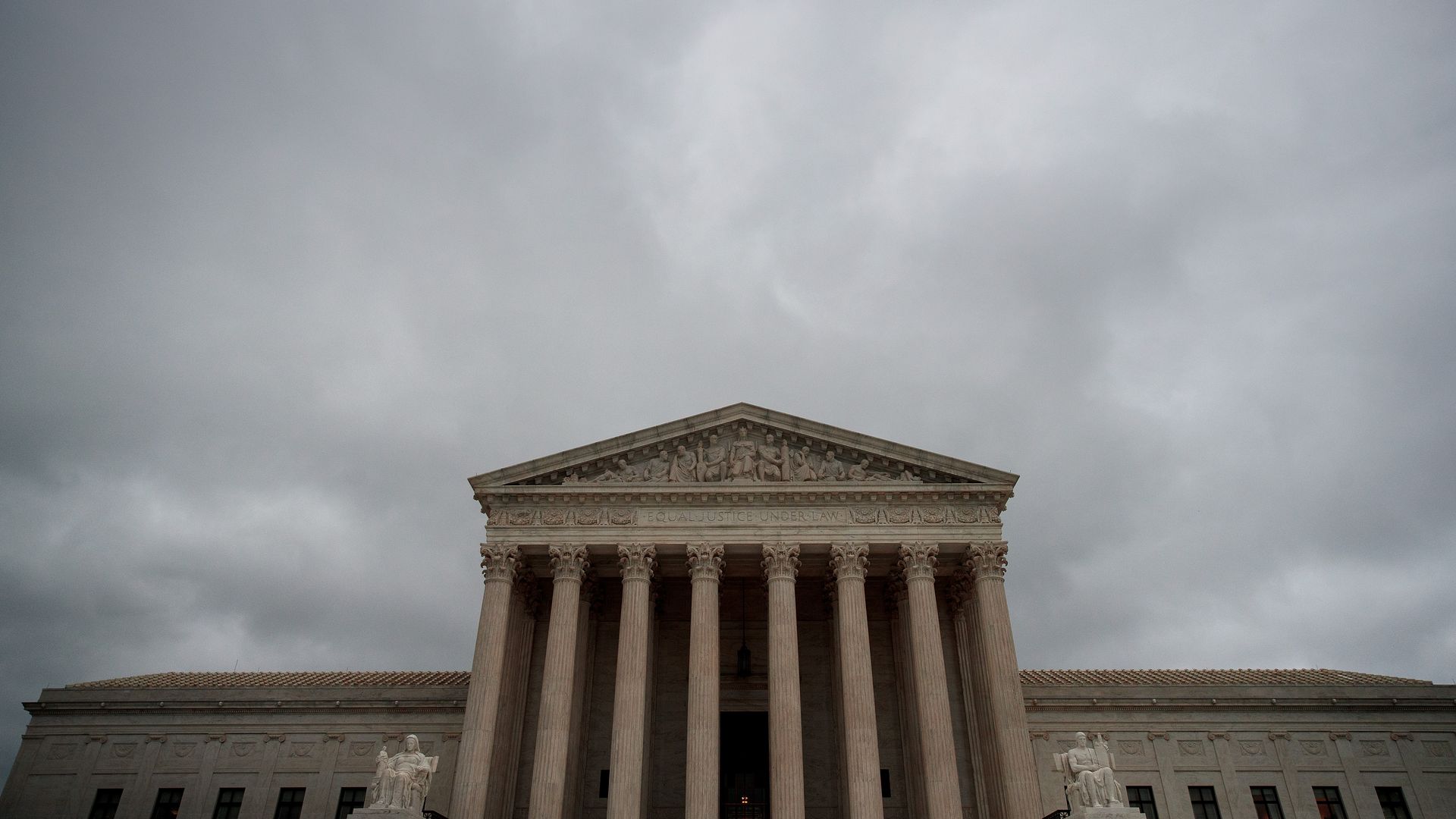3 bad signs for the tech industry at the Supreme Court
Add Axios as your preferred source to
see more of our stories on Google.

Photo: Drew Angerer / Getty Images
The Supreme Court does not seem convinced that storing emails on an overseas server should put them outside the relatively easy reach of American law enforcement. That’s not a great sign for Microsoft — and, by extension, the tech industry as a whole — which squared off against the Justice Department today at the high court.
The issue: Federal law spells out a process for law enforcement to search a suspect’s email account. But that law isn’t entirely clear, and it was written long before the rise of cloud computing. United States v. Microsoft is about law enforcement’s ability to access emails that are stored outside the U.S. — in this case, on a server in Ireland.
The big picture: The case heard by the court today tests the balance of digital privacy and law enforcement and tries to jam new technology into an older legal framework. No clear majority seemed to emerge for any one holding, but three consistent themes seemed to point away from a broad ruling in Microsoft’s favor:
Conservatives were dubious. Microsoft is arguing that when it stores a person’s emails on a server in Ireland, retrieving those emails is a thing that happens in Ireland — and is, therefore, a thing U.S. law enforcement cannot compel on its own.
- Chief Justice John Roberts and Justice Samuel Alito were deeply skeptical of that argument and thought it put too many roadblocks in law enforcement’s way.
- When American investigators ask an American company to turn over an American citizen’s emails, to investigate crimes committed in America, “it is a little difficult to see what Ireland’s interest is,” Alito said.
- “You might gain customers if you can assure them, ‘No matter what happens, the government can’t get access to your emails,” Roberts told Microsoft’s lawyer.
Sheer confusion — over both the law and the technology.
- Justice Neil Gorsuch, as is his wont, zeroed in on the simple text — the law describes how law enforcement can get a “warrant” for people's emails, and warrants can’t cross international borders.
- The broader point of the law is about “disclosure,” some of the justices argued, and that’s more important than the technical use of the word “warrant.” Congress simply never envisioned that Microsoft’s data would be so far away from its Redmond, Wash. headquarters, where a traditional warrant might have done the job.
- “The disclosure happens in Washington, not in Ireland,” Roberts said.
If Congress is going to act, it should act soon. The tech industry has urged the court to leave this issue alone — it has advocated to simply let Congress write a new law rather than try to shoehorn modern technology into a law written in the 80s.
- Justices Ruth Bader Ginsburg and Sonia Sotomayor liked that idea. But it wasn't clear that five justices would be willing to wait.
- “It would be good if Congress enacted legislation that would modernized this, but in the meantime something has to happen,” Alito said.
